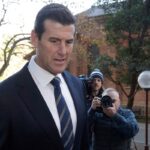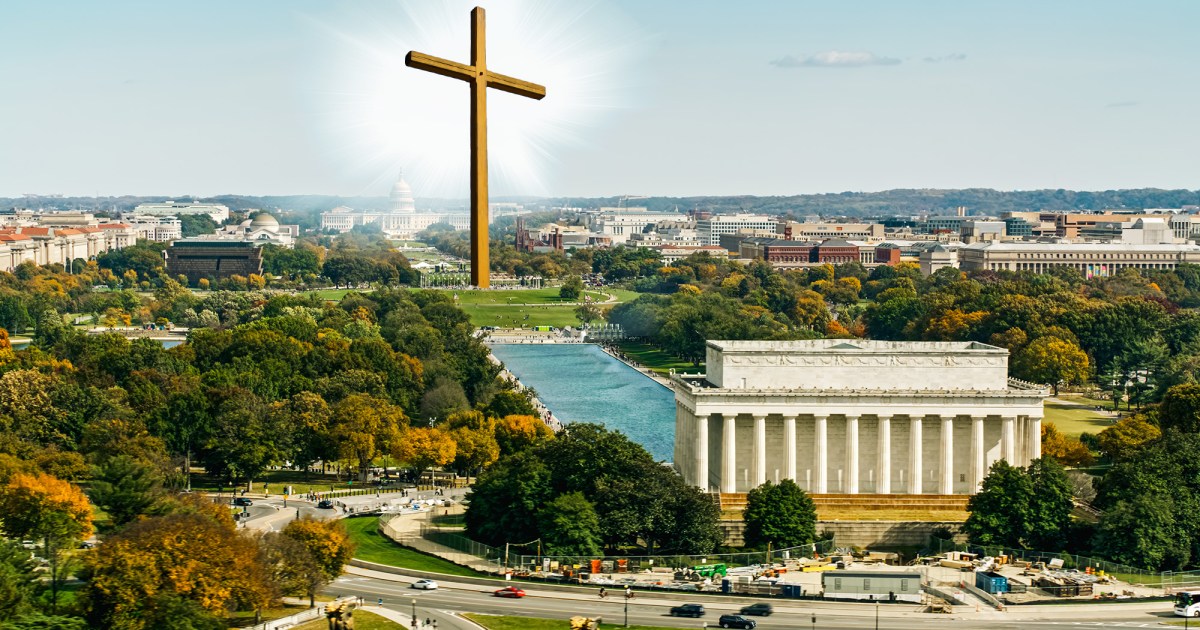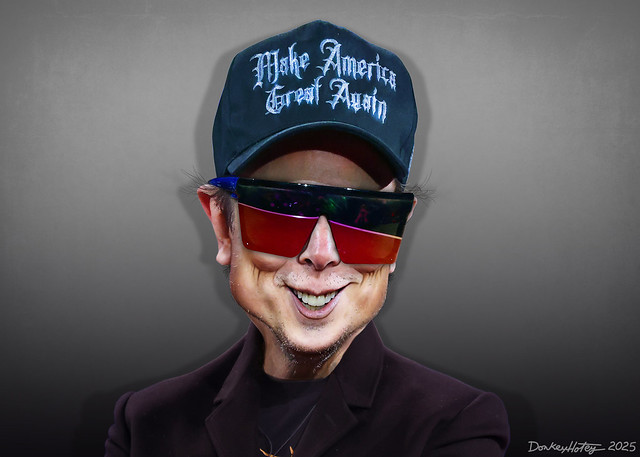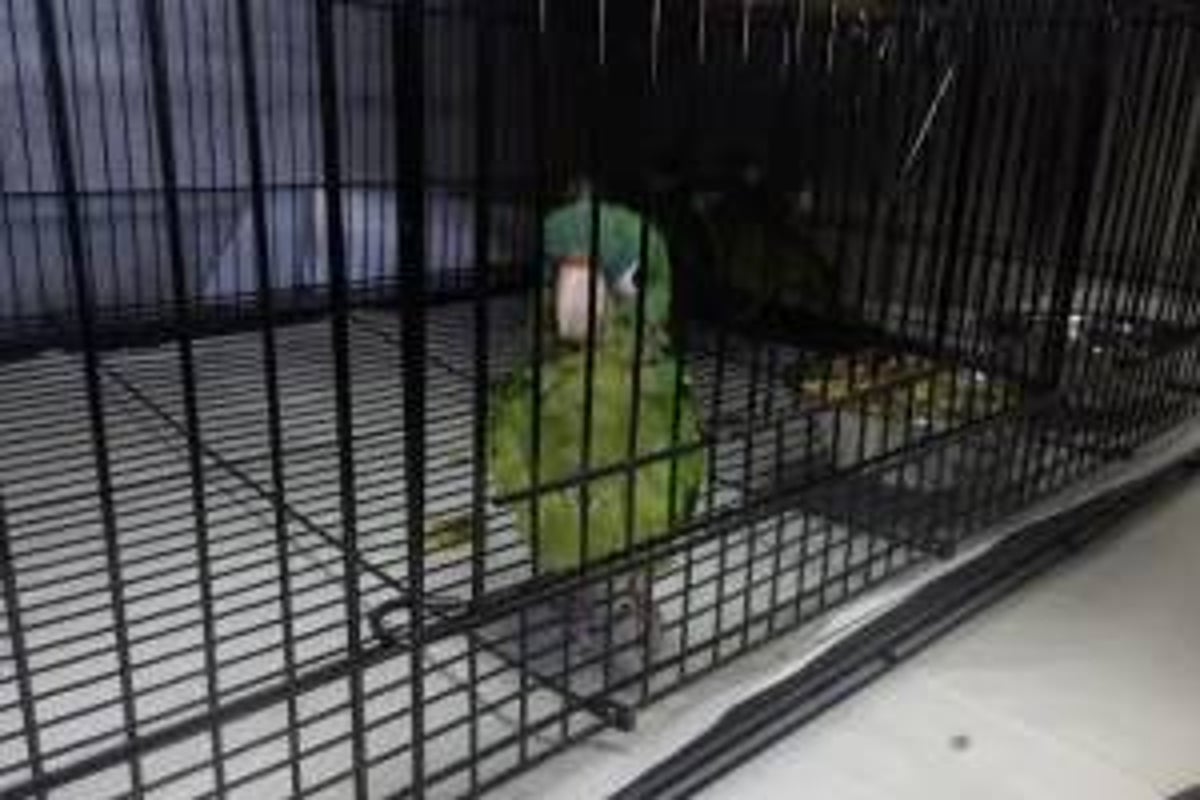Earlier this week, Moscow, Idaho, pastor Doug Wilson made a big announcement: In July, his church will be opening a branch in Washington, DC, just blocks away from the US Capitol building. In a blog post, Wilson, a self-proclaimed Christian nationalist, wrote that he believed that the moment was right to bring his version of Christianity to the nation’s capital. “We believe that there will be many strategic opportunities with numerous evangelicals who will be present both in and around the Trump administration,” he wrote.
In a metropolitan area that includes more than 8,000 places of worship, what is it that Wilson hopes to provide? First, a bit of biographical information: Wilson, who is in his early 70s, is the head pastor of the flagship church of the denomination that he helped found, the Communion of Reformed Evangelical Churches (CREC). Wilson is also the unofficial patriarch of the TheoBros, members of a network of mostly millennial, highly opinionated, ultra-conservative men, many of whom also proudly call themselves Christian nationalists. Among the tenets of their particular tributary of Reformed Protestant Christianity is the idea that the United States should be subject to biblical law.
In Moscow, Wilson has been famous for decades: He helped to establish a college, a printing press, and a classical Christian school. More recently, he’s garnered national attention, largely by being extremely online. He blogs, he posts on social media, and he makes slickly produced YouTube videos. Last year, an interview with former Fox News host Tucker Carlson raised his profile higher still.
As I wrote last year, even in the TheoBros fraternity, Wilson stands out as a firebrand: He has argued that the master-slave dynamic was “a relationship based upon mutual affection and confidence,” called the trope of the dominant man and a submissive woman “an erotic necessity,” and opined that women never should have been given the right to vote. When I asked him about his most provocative statements, he compared himself to a chef who cooks with jalapeño peppers: “Some of my enemies online have combed through my writings, have gathered up all the jalapeños, and put them on one Ritz cracker,” he told me.
In order to understand more about what it means to plant a church, as much for political as religious reasons, I turned to Rev. Rob Schenck, a former evangelical leader who was once a key figure in the anti-abortion movement and brought his ministry to Washington in 1994. He noted similarities between Wilson’s new church and his own past efforts to infuse the Capital with evangelical Christianity. Even Wilson’s reference to DC as “Babylon,” a depraved city in the Bible, was one he used when describing and fundraising for his work. “The narrative is, ‘we are sending God-fearing people into a godless culture,’” Schenck said, “and redeeming that culture, or reclaiming, it for godly values.’”
Yet there was a key difference between Wilson’s foray into DC and his own. In 1994, when Schenck planted the National Community Church, also on Capitol Hill, he faced an uphill battle. Bill Clinton was president, and evangelicals were relegated to the fringes in Washington. Today, Christian nationalists occupy considerable power and influence—think House Speaker Mike Johnson and Project 2025 architect and OMB Director Russ Vought. “The government ranks from high to low are populated by many more evangelicals,” Schenck said, referring to the change since he moved to the city. “And among them, some of the most activist-oriented are the reformed. It’s a distinctly different atmosphere.”
Indeed, powerful people in the Trump administration have close ties to Wilson and the TheoBros. Although he is a Catholic, Vice President JD Vance is connected to them through Chris Buskirk, who sits on the board of a TheoBro magazine and cofounded a powerful Republican donor network. Vance once posed for a photo with several prominent TheoBros, and last year, he spoke at the National Conservatism conference, where Wilson was a fellow speaker.
US Secretary of Defense Pete Hegseth also has connections to Wilson. He attends a Nashville church in Wilson’s denomination. Last year, the magazine Nashville Christian Family ran a profile of Hegseth, in which he mentioned being a member of a “Bible and book study” that focused on the book My Life for Yours by Doug Wilson.
Wilson’s new church is set to open in July, with pastors flying in from various places to take turns delivering sermons in hopes of capturing the attention of powerful DC Christians. “These believers are obviously culturally engaged already,” he wrote on his blog, “but we happen to believe that every form of cultural engagement needs to have a solid theological foundation,” without which, “cultural engagement tends to morph into something that resembles wind surfing on the various breezes of doctrine that tend to blow through evangelicalism. We don’t want anything like that.”
In a podcast appearance this week, Joe Rigney, an associate pastor at Wilson’s church, went into more detail. He explained that he worried about a kind of complacency in the Trump administration, about administration officials who might rest on their laurels, saying to themselves, “‘We’re not going to trans the kids—the boss is all in on that.’ And they’re like, ‘Look, we’re doing it!’” But Rigney wants the new church to push them further. “I need a minister there who’s going to say, ‘Obergefell [the 2015 Supreme Court case that made gay marriage legal] is next. We’re coming for that.’” he said. “You calibrate the Christians in DC by the word of God—and not by whatever the present administration can tolerate.”















